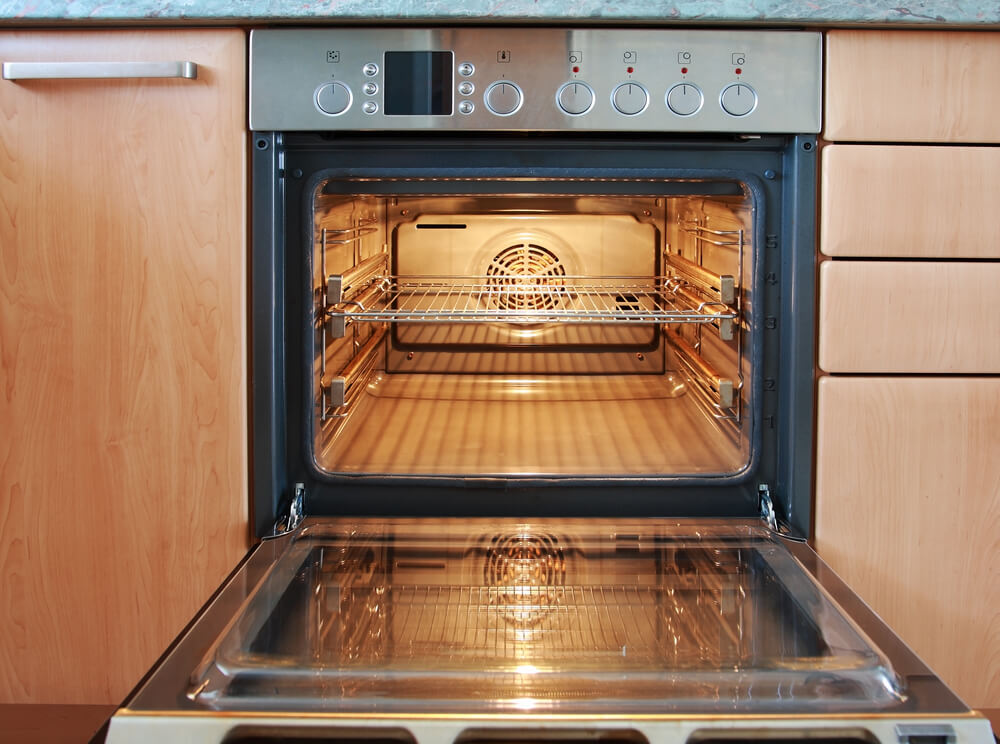
Can You Plug An Electric Oven Into A Normal Socket
This is one of the frequently asked questions by most homeowners, especially women. You should know that not all ovens come with a fitted plug. Most ovens come with a user manual where it will state the capacity of the oven and the type of plug that should be used with it. As an end-user, there are certain things you need to know about the oven. Theedam Electrics (my local Electrician in Hertfordshire), advises that you use an oven with a socket in respect to what the manual says, whether you should plug it into a normal wall socket or require a special socket.
Unlike other home appliances, an oven is a reliable machine that requires a high degree of electric current for optimum performance. What this implies is that before you can make use of your oven in your normal socket, there are some things you should be aware of. I will be explaining some of the things you need to know before plugging your electric oven to your standard socket.
What I need to know before plugging my electric oven to a regular socket:
1. What is the capacity of my wall socket?
This should be the first question that registers in your head before thinking of plugging the oven. Most homeowners have burnt down their houses because of this simple and straightforward question. Ask yourself, what is the capacity of my socket? Is it a 13 Amp or 15 amp socket? You will have to examine the power that enters the outlet. So, what is the capacity of your wall socket?
2. What is the power requirement of the oven?
The power the oven consumes is another essential and technical information you should know. You can’t use an oven that needs a power of at least 220 Watts in a socket that has just the ability to produce a power of 120 Watts. If you do this, you are going to damage the socket, and you stand a risk of fire hazard. Before you plug in the oven be sure to consider if whether the plug is compatible with your wall socket. Make sure you contact your local electrician to put you through this process because often, you need technical advice and expertise on issues like this.
3. Does your kitchen socket have its own separate circuit?
Are you plugging the oven into the socket where you plug other appliances? Does the outlet have multiple devices on it already? What are the devices you use with this socket usually? All these are questions you need to ask yourself before plugging your electric oven to the outlet. If you have a double matrix socket, at the first end, you plug your refrigerator and the other end, you are planning on connecting the oven. This combination will only be possible if the socket has the power to cope with the load placed on it (the refrigerator and the oven). The moment you plug the oven in the socket, and it gives sparking sounds, detach immediately. That shows that they are not compatible. Do not plug a 15 amp plug in a 13 amp wall socket. It won’t even enter and if it does, it will damage the socket, and leave you and your home at the expense of fire hazard.
If you have successfully answered the questions I mentioned earlier, then you can go on with plugging the oven into the socket. If you have any doubt whatsoever, you should call an electrician to come and have a look and offer a solution. For instance, if you have a specific oven in mind, you can talk to your electrician about it. This will be a lot easier if your electrician knows about the wiring of your building. He could offer you a wide variety of options with regard to the kind of oven you can buy and if need be, the type of socket that it will be compatible with. Usually you might have to get new cables if the normal ones are not durable.
You should know that an oven requires a circuit with at least a 30 amp breaker for best efficiency. So, if you know you have more than that in your home, feel free to acquire the oven. On the other hand, if your home runs on at least a 40 amp breaker, you might want to upgrade it before getting an oven since it’s not the only appliance you have. And if your wall socket can retain more than 30 amps, plug it in and begin to use it.
Ovens tend to demand a high degree of electricity to run. Although it varies for all ovens, I will advise you not to plug your oven directly to a normal socket and always consult an electrician before installation. Most ovens should run on their own separate circuit, so that it is isolated from your other appliances.
Reference

